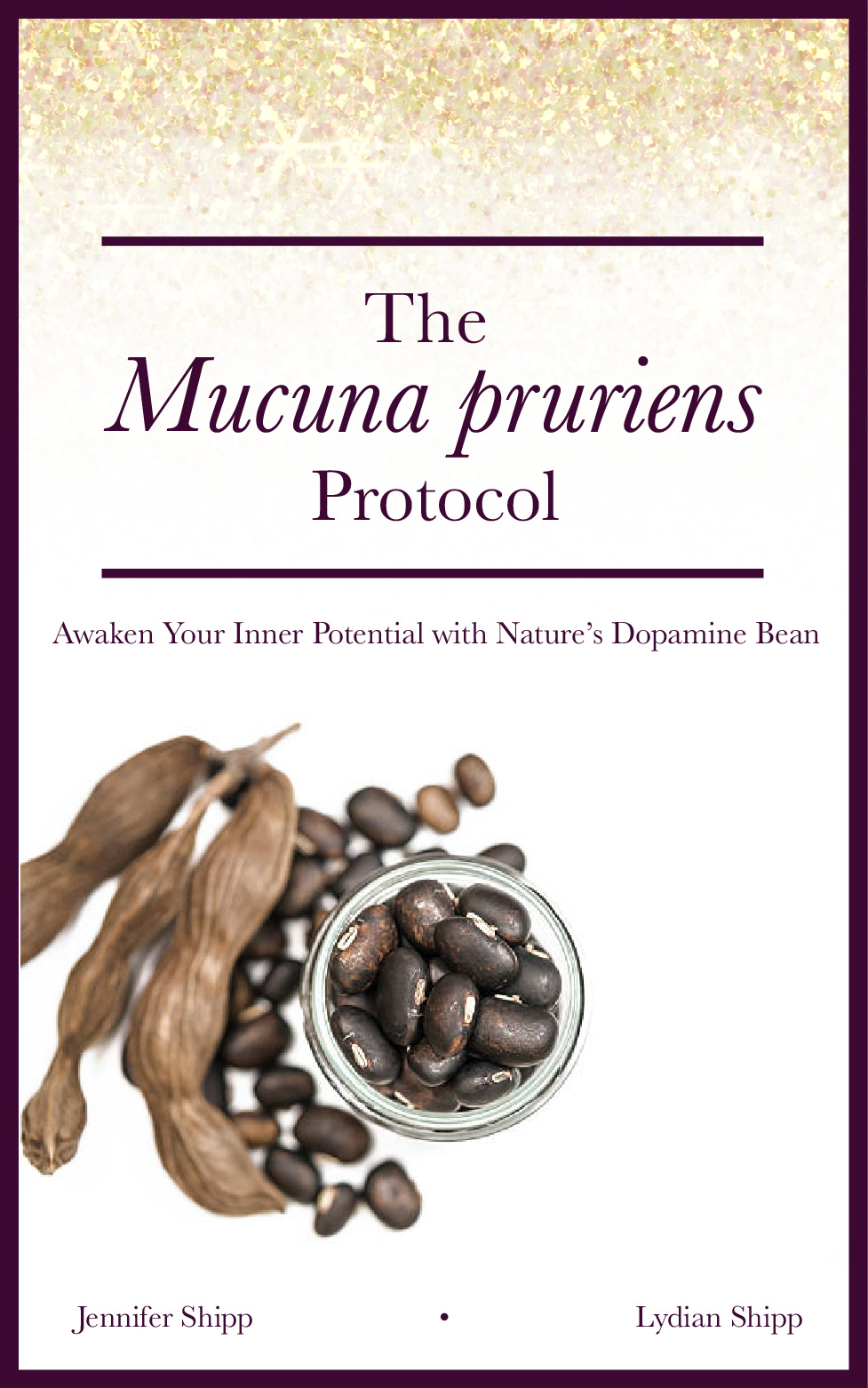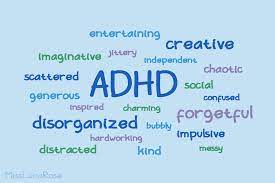 Can you treat ADHD without medication?
Can you treat ADHD without medication?
NOTE: This article is relevant to the treatment of ADHD in adults as well as in children.
If your child has problems with hyperactivity or lack of focus and you’ve decided to give him or her amino acid supplements or Mucuna pruriens herbal treatments for ADHD, then you’ll need to make sure that your child also supplements with the following nutrients that are absolutely vital for amino acids, including L-Dopa, to be converted into healthy dopamine that will give your child control over themselves again. Parents who don't give their child amino acids or Mucuna pruriens to boost dopamine production in the brain (perhaps because they don't realize that amino acids and Mucuna are the key to treating ADHD in adults and children) will still likely see results from taking the supplements listed below, but the results will be much more pronounced if the child (or adult) with ADHD takes amino acids and/or Mucuna pruriens (an herb) along with the supplements we talk about below.
The Mucuna pruriens Protocol: Overcome Dementia, Addiction, ADHD, Mood and Mental Health Disorders
Think of amino acids and Mucuna pruriens as the raw materials that the brain needs to make the neurotransmitters that can help a person feel relaxed (both physically and emotionally), content, and focused. Let's imagine that these raw materials (aminos and Mucuna) are like lumber/wood. So amino acids and Mucuna are like lumber, but the vitamins and minerals below are like the tools that will be used to transform the wood into something useful like a house. Without the proper tools like a saw, a hammer, and some nails, the lumber will be hard to use. On the other hand, with a few basic tools, lumber can be made into a wide variety of different things that are useful and important (like houses, furnishings, and more). If you have only one thing or the other, it may not be possible to build anything with the Mucuna pruriens or amino acids. In other words, if you have only a saw, a hammer, and some nails, but no wood, you won't be able to build anything at all. Or, if you have wood, but no tools, no hammer, no saw, and no nails, it will also be nearly impossible to build anything solid. But if you have wood (in this metaphor the wood is like the amino acids and the Mucuna pruriens) and the tools are like vitamin B6, zinc, magnesium, etc., your brain will have everything it needs to create all the neurotransmitters that govern attention and self-control.
The nutrients listed below will help make the amino acids and/or Mucuna pruriens treatments work properly. If your child is not given these supplements while he/or she is taking Mucuna pruriens or amino acids you may not see the same results from treatment with Mucuna pruriens and amino acid therapy for ADHD. Indeed, if your child is given just the nutrients listed below without also taking either amino acids or Mucuna pruriens (or both, taken at separate times of the day), your child also won't experience the same results. So we recommend that you look especially closely at using Mucuna pruriens because this herbal cure for ADHD is calibrated to work with the human brain to heal dopamine neurons. What this means is that a person who suffers from ADHD will not only experience a huge improvement in their symptoms when they first start taking this herb (1500 mg administered 4 times per day in adults; 750 mg administered 4 times per day in kids), but they will also experience healing of the brain over time because Mucuna pruriens encourages the brain to heal dopamine neurons that have been damaged by addictive behaviors or addictive drugs, including prescription drugs for ADHD. But if parents or adult ADHD patients are afraid to use Mucuna pruriens because they believe the propaganda put out there by Big Pharma against this herbal cure for ADHD, amino acids are a tame alternative that work well too in combination with the supplements listed below.
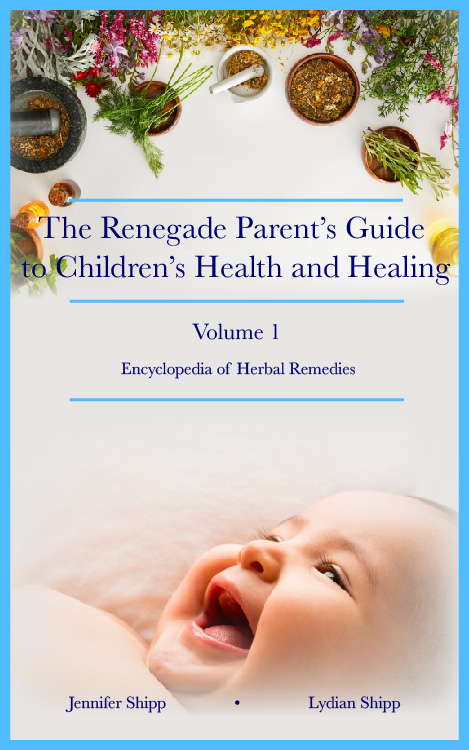
Click here to buy The Renegade Parent's Guide to Children's Health and Healing: Volume 1 - Encyclopedia of Herbal Remedies
Vitamin B6 - Pyridoxal Phosphate
Vitamin B6 is essential in order for Mucuna pruriens or amino acids to convert to dopamine, but most kids and adults would benefit greatly from working with a vitamin B complex product that contains most or all of the B vitamins at a dose of either 100 mg or 100 mcg per capsule. Some B vitamins (like vitamin B12) are measured in mcg while others (like vitamin B6) are measured in milligrams. A vitamin B100 complex includes all of the major B vitamins at a dose of 100 milligrams or micrograms.Avoid wasting your money on super-low dose B vitamins for both kids or adults that supply less than 10 mg or 10 mcg or less of the B vitamins.
For ADHD, vitamin B6 is an essential nutrient that serves as a coenzyme in the conversion of L-dopa into dopamine. But that’s not the only function of vitamin B6 in the body. Vitamin B6 also plays a role in the metabolism of glucose and lipids. It is essential for the conversion of amino acids into other substances our bodies need to repair itself and survive. Vitamin B6 may not be properly used by the body, however, if there is a zinc deficiency, so be sure to combine vitamin B6 treatment with zinc treatment if you decide to use natural supplements for ADHD treatment.
Click here to subscribe to the Living Database!
If the body is deficient in vitamin B6 a wide array of neurotransmitters including serotonin, dopamine, and norepinephrine are affected. But glutamate, the excitatory neurotransmitter may not be able to convert into GABA, a calming neurotransmitter as well. Essentially, without adequate vitamin B6, children and adults experience several neurotransmitter imbalances that could lead to symptoms of ADHD. Even a mild deficiency of vitamin B6 can lead to significant neurotransmitter imbalances that affect behaviors.A deficiency of vitamin B6 involves neurological symptoms such as drowsiness or even peripheral neuropathy (a painful condition of the peripheral nerves). Individuals with vitamin B6 deficiency may suffer from movement issues or sensory disorders or even immune dysfunction. Vitamin B6 also plays a role in glucose regulation in the brain.
In children, the recommended daily dose of vitamin B6 is 25-50 mg. Give your child 2-4 drops daily of this vitamin B6 product.
 Click here to buy Liquid Vitamin B6 Drops.
Click here to buy Liquid Vitamin B6 Drops.
OR, if your child is old enough to take pills, consider administering this product, which contains all of the B-vitamins:
 Click here to buy B Vitamin B Complex.
Click here to buy B Vitamin B Complex.
In adults, the recommended daily dose of vitamin B6 is 100 mg per day. For adults, I we recommend this vitamin B complex product which contains high doses of all of the B vitamins.
 Click here to buy B-100 Vitamin.
Click here to buy B-100 Vitamin.
Zinc
Proper levels of zinc are essential for good health, growth, development, and reproduction. Zinc plays important roles in regulating the brain. Indeed, zinc is necessary for the conversion of vitamin B6 into its active form. And of course, without vitamin B6, L-tryptophan (another amino acid that plays a role in sleep among other things) cannot be converted into serotonin and a variety of other neurotransmitters may become imbalanced as well. Zinc plays a role in the production and regulation of melatonin levels in the brain regulating sleep and wake cycles, but it is also necessary for the production and metabolism of dopamine as well as essential fatty acids. Studies have shown that lower zinc levels correspond to worse ADHD symptoms in children. Some scientists have speculated that zinc depletion in ADHD kids may result from reactions to certain synthetic chemicals that are found in food. The synthetic additives in some foods and beverages may require high amounts of zinc during their metabolism which causes zinc depletion in the body. In studies where children were exposed to chemical additives in food, zinc levels were rapidly depleted after the additives were consumed. As zinc levels plummeted, ADHD behaviors worsened. Zinc supplementation ranges from 15 to 150 mg of zinc daily depending on the type of zinc that’s being administered. Note that higher doses of zinc may cause stomach upset so divide the doses throughout the day if this happens to you. If your child takes zinc for longer than 1 month, consider adding in 2 mg of supplemental copper daily while they are taking the zinc (check your child’s multivitamin, though, since the multivitamin may already contain some supplemental copper, in which case it’s not necessary to take any more). Zinc supplementation can chelate copper from the body. Copper, in turn, is the most important trace nutrient that kids need in order to overcome and prevent iron deficiency. Iron deficiency is almost synonymous with ADHD because of the types of pathogens that cause ADHD. While a lot of sources today indicate that iron deficiency is the underlying cause of ADHD, in reality, hemolytic pathogens that eat the heme in our red blood cells in order to survive are the underlying cause of the iron deficiency. So mineral supplementation can be complex which is why we’re expanding on this topic here. If you give your child zinc without copper, copper deficiency could lead to iron deficiency anemia. Most people should supplement with iron, based on recent research that we’ve uncovered from Dr. Bryan Ardis. Rather, to correct an iron deficiency, administer copper. But copper may not be well absorbed if the ADHD patient has gastrointestinal inflammation. Do you see why this is a complicated issue?
Click here to schedule a health coaching call with us.
We have already presented the idea that children with ADHD may, in a majority of cases (with a few exceptions) need to be given doses of red wine throughout the day to address the problem of intermittent, low-grade fevers (that often go unnoticed – between 98.6°F / 37°C and 100.4°F / 38°C) combined with an inability to correct iron deficiency anemia without causing other behavioral or physical health issues to emerge. As it turns out, red wine also contains trace amounts of zinc in addition to trace amounts of copper and iron. This is why red wine is such good medicine for treating ADHD that’s caused by a hemolytic pathogen that’s literally consuming the child’s iron stores to produce a low supply or red-blood cells and a generally depleted state both physically and mentally.The information that we're presenting her about zinc, copper, and iron, specifically regarding iron deficiency anemia is something that we uncovered by researching cures for diphtheria in children. Before the development of vaccines, doctors were successful at being able to halt the progression of diphtheria using either whiskey (the child was given whiskey to the point of becoming somewhat drunk in the early stages of diphtheria disease development) or Cinchona officinalis with Schussler salts containing iron. When these doctors were working with diphtheria patients, Cinchona officinalis was being developed as the very first homeopathic medicine for patients, but it was always combined with trace amounts of copper because homeopathic doctors knew that Cinchona as a medicine worked best in the presence of copper.
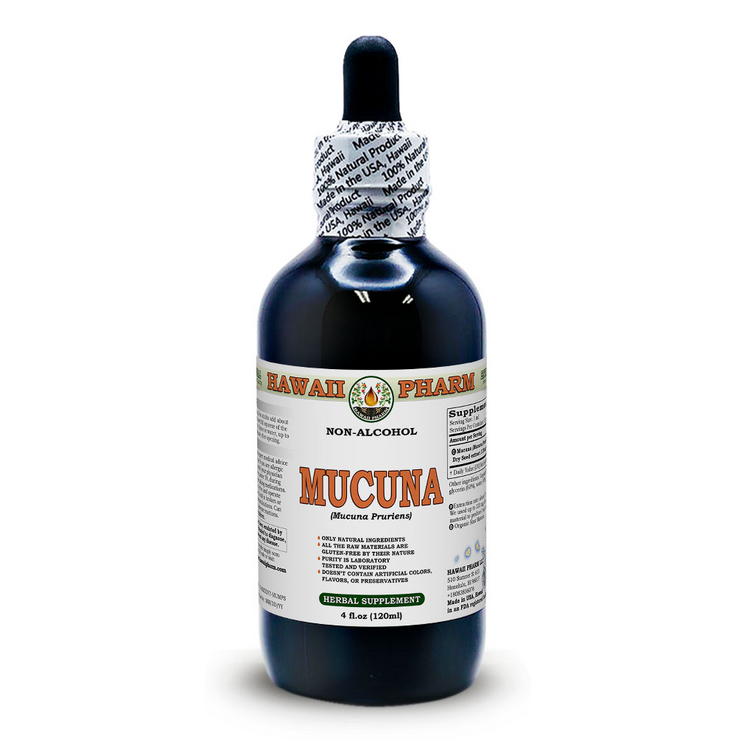
CLick here to buy Hawaii Pharm's Mucuna pruriens tincture.
Today, we know that Cinchona officinalis as an herbal remedy for PANS / PANDAS, OCD, and ADHD (among other things) works because it targets hemolytic pathogens like Streptococcus pyogenes (there are many hemolytic pathogens) and malaria. These pathogens survive by eating human iron which is stored in red blood cells. If we supplement with iron in supplement-level doses, we feed those pathogens directly. The only safe way to supplement with iron is to administer it in trace quantities, ideally with alcohol (Schussler salts are sold in tincture form containing alcohol, but red wine also works). Red meat is another vital food-medicine for kids with ADHD. Red meat also contains copper, iron, and zinc in a bioavailable form along with essential amino acids like L-tyrosine and L-phenylalanine. Note also that Cinchona officinalis should always be administered with plenty of zinc. If you are giving your child (or yourself) red wine and red meat as a part of this protocol, that will supply one of the most important supportive nutrients that’s needed in order for quinine to cut off the supply of iron to hemolytic pathogens.
 Click here to buy a zinc supplement.
Click here to buy a zinc supplement.
Iron, Zinc, and Copper
Children with iron deficiency may develop restless legs syndrome or periodic limb movement disorder. A child who develops physical leg restlessness or periodic limb movement disorder may be misdiagnosed with ADHD. But while a lot of sources on the Internet right now announce this idea of iron deficiency as though it were the underlying cause of ADHD, PANS, PANDAS, and OCD, this information is only partially correct.In fact, the underlying cause of iron deficiency and iron deficiency anemia is not low iron levels in the body, but infection involving a hemolytic pathogens that consume iron which is stored in our red blood cells as heme. “Heme” is the molecule that binds to oxygen to carry oxygen to tissues throughout the body. We need our heme in order to have energy and to feel okay emotionally and physically. Most of the advice out there currently is for parents to give their kids iron in order to overcome iron deficiency anemia, but actually, I wouldn’t advise that parents do this. We need iron, but our bodies recycle iron, so our iron needs are usually really low. In fact, in order to build red blood cells and heme, we need to make sure we have copper in the diet.
We’ve also talked a bit about zinc. In order for Cinchona officinalis to work effectively to kill hemolytic pathogens that are eating red blood cells, which causes iron deficiency anemia that, in turn, causes behavioral and emotional issues as well as an inability to sit still, you need zinc. Cinchona officinalis works best in the presence of zinc and copper. Iron is readily absorbed from the diet and used to build red blood cells when the body has access to even trace amounts of it in the diet. This is why we advise that ADHD kids and adults take a small dose of red wine several times throughout the day to build red blood cells and overcome iron deficiency anemia. Red wine contains zinc, copper, and iron in trace amounts that are super-easy for the body to absorb even if the patient has severe digestive system inflammation (which is common in ADHD kids).
Indeed, kids with autism / ASD often also have ADHD. ASD kids also tend to be very pale. In order to overcome their underlying iron deficiency anemia, red wine can be given in small doses throughout the day. Kids with autism tend to be picky eaters, similar to kids with ADHD in part because of the underlying pathogenic colonization of the body that causes iron deficiency anemia and a correlational drop in red blood cells. Once the body is anemic, tissue inflammation starts to happen as a result of the lack of red blood cells to bring oxygen to the tissue and to carry toxins away from the tissues. In order to reduce digestive system inflammation so that the child can begin to eat normally again, the patient needs to rebuild their blood supply. Iron supplements can irritate the digestive system and they aren’t well absorbed or used without copper and zinc. Copper isn’t always easily absorbed by the body, especially when there’s inflammation in the digestive system. Red wine is a solution to this problem.
Again, this is a complicated topic because, in fact, iron deficiency anemia points to a low-level Streptococcus pyogenes infection or an infection with another pathogen that consumes heme in order to survive (there are a number of pathogens that do this). A parent who is told that their child has “iron deficiency” anemia would logically wish to supplement with more iron as the diagnostic label “iron deficiency” points to iron supplementation as a logical treatment, right? But if you supplement with iron, you are actually potentially feeding the pathogen that took up residence in the body perhaps many years ago to cause ADHD symptoms (or OCD, PANS, or PANDAS symptoms).
Streptococcus pyogenes is quite a fascinating bacteria that has pleomorphic super-powers. In other words, it can change into different shapes to elude antibiotics, but Cinchona officinalis / quinine is a powerful at-home antibiotic treatment when combined with another herb like Artemisia annua or Hemidesmus indicus or an over-the-counter pharmaceutical like methylene blue. You can overcome a strep infection that causes ADHD and other serious symptoms of chronic health or mental health issues.
.
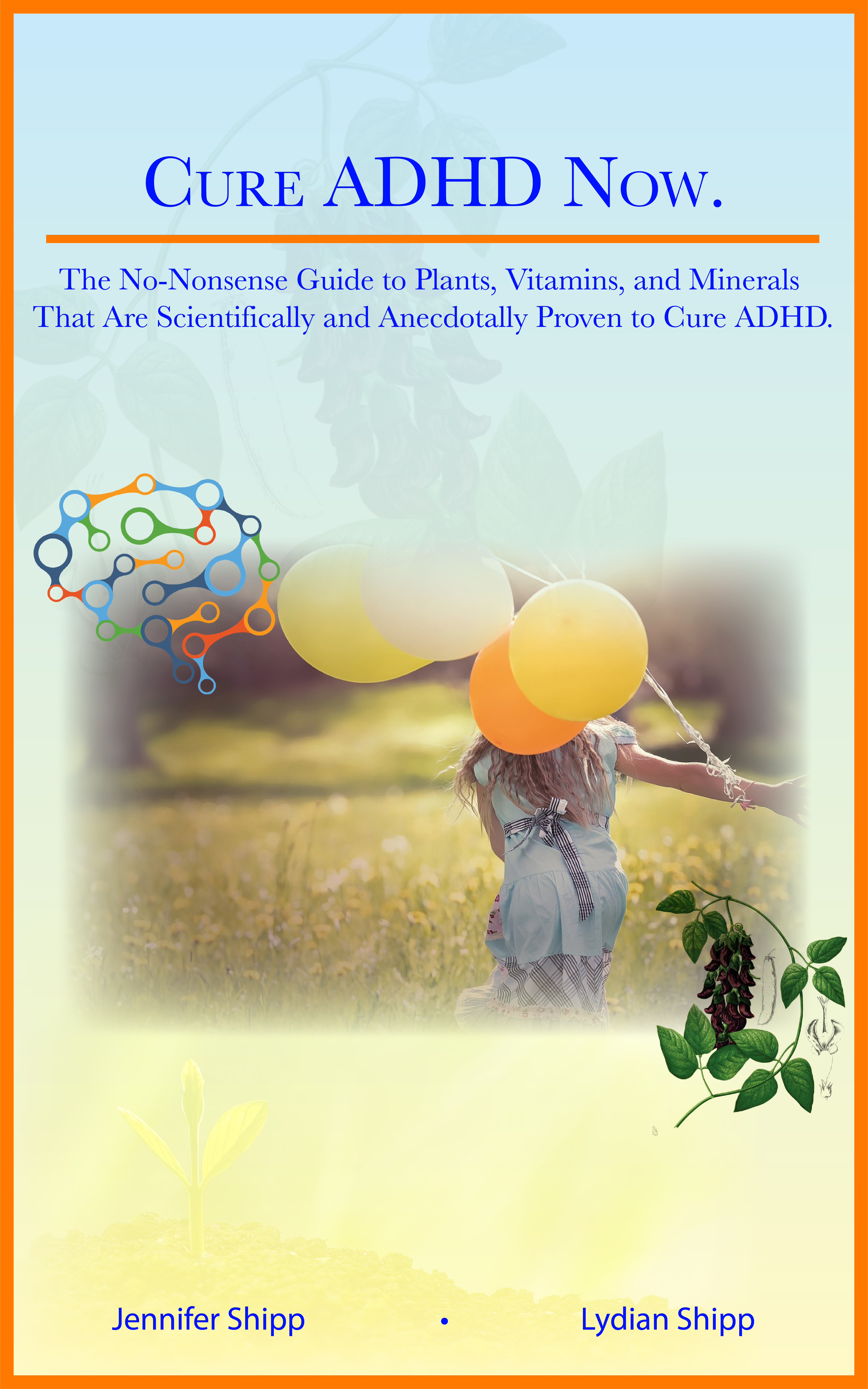
Click here to buy the book Cure ADHD Now.
Magnesium
Though the relationship between ADHD and magnesium levels is not extremely well-understood, a number of studies have shown that there’s clearly a relationship between magnesium deficiency and ADHD. Indeed, some authors note that the symptoms of magnesium deficiency are identical to the symptoms of ADHD. At this juncture, however, readers should also note that magnesium and quinine occupy similar receptors and they should thus, not be administered at the same time because they compete with each other. Quinine is used to treat restless legs syndrome, but magnesium is also sometimes used for this purpose. While in some cases, a lack of magnesium causes the skeletal muscles to become overactive and restless (unable to rest) due to a nutrient deficiency. In other cases, quinine is necessary instead of magnesium because the actual, underlying problem is not a nutrient deficiency, but rather the problem that pathogens like Streptococcus pyogenes can do molecular mimicry and pretend to be the myosin in skeletal muscle tissue. In order to stop physical restlessness caused by an infection in the skeletal muscles, you need an antibiotic medicine like quinine (which is found in Cinchona officinalis) to kill the pathogen and permanently overcome the physical hyperactivity.Children with ADHD tend to have low serum and hair magnesium levels and studies show that about 95% of children with ADHD have a magnesium deficiency. In addition, some ADHD medications can deplete magnesium levels. So while you might treat your child with Cinchona officinalis / quinine at first, you still need to give your child magnesium, albeit at a different time of the day that’s separated from Cinchona / quinine doses by at least 2 hours.
Magnesium deficiency or even just suboptimal levels of magnesium can lead to a reduction in energy metabolism, poor nerve signaling, and reduced blood flow to the brain. Magnesium plays an important role in regulating nervous system excitability. But in order to really reap the benefits of magnesium for your ADHD child (or for yourself, if you’re an adult with ADHD), you may need to administer daily doses of Cinchona officinalis with Artemisia annua or another combination treatment that includes Cinchona bark for 4 to 8 weeks.
Magnesium deficiency can cause any of the symptoms listed below:
- Restlessness
- Lack of focus / distractibility
- Irritability
- Drowsiness
- Sleep problems
- Muscle weakness
Magnesium supplementation helps kids manage hyperactivity while improving their focus, but magnesium has also been shown to diminish anxiety and depression, two other mental health issues that involve the conversion of neurotransmitter precursors into the neurotransmitters dopamine, noradrenaline, and adrenaline. In other words, even though you shouldn’t give your child Cinchona officinalis and magnesium at the exact same time, you should still give your child (or yourself) daily doses of magnesium to ensure that the body can process amino acids into neurotransmitters that promote focus and physical restfulness.
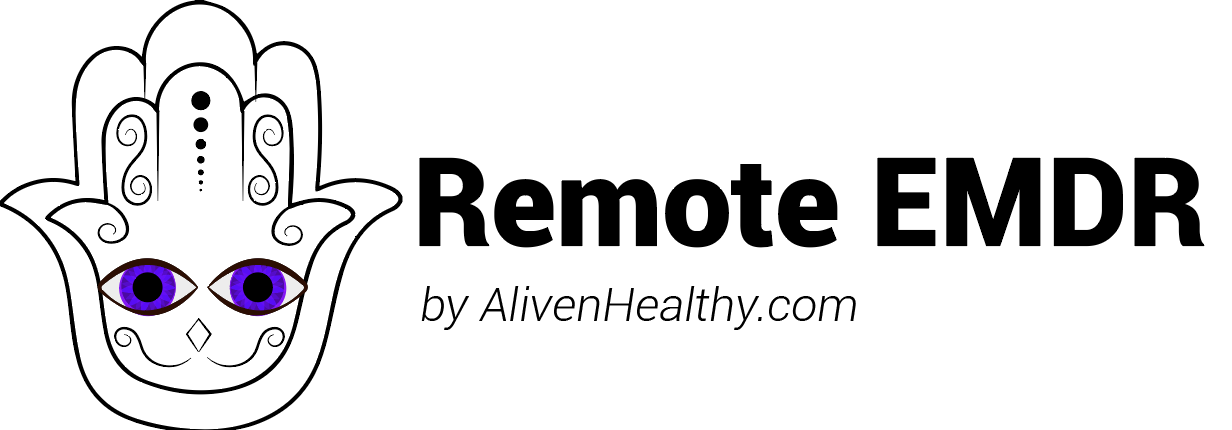
Click here to do a free trial of EMDR to Release Trauma.
In one study, 50 children with ADHD between the ages of 7-12 years of age were given 200 mg/day of Magnesium over the course of 6 months. These children experienced significant reductions in hyperactivity and reduced distractibility in comparison with a control group of ADHD kids who were not treated with magnesium. Another study of 52 ADHD kids combined magnesium supplementation (100 mg per day) with vitamin B6 supplementation (100 mg per day) to achieve similar results wherein the kids who received magnesium and vitamin B6 supplements were less hyperactive and more focused. Other studies into magnesium in ADHD kids have also shown that magnesium supplementation promotes better sleep and correspondingly better behavior during waking hours.Both adults and children can take magnesium citrate that's free of sugar and other ingredients that could aggravate ADHD. While adults may prefer to take pills (at least 600-800 mg per day, but more is okay), kids can be given 150-400 mg of magnesium citrate powder per day with honey and Mucuna pruriens or amino acids mixed in with it.
 Click here to buy Magnesium Citrate Capsules.
Click here to buy Magnesium Citrate Capsules.
Fat-Soluble Vitamins and Omega Fatty Acids
The brain is mostly made up of fats. About 60% of the cerebrum is made of long-chain omega-3 PUFA docosahexaenoic acid (DHA). The DHA precursor eicosapentaenoic acid (EPA) is also important in maintaining blood flow, reducing inflammation, and preventing blood clotting in the brain. The amount of DHA levels in neurons varies depending on how many omega fatty acids a child consumed.Some studies have shown massive improvements in ADHD behaviors and learning potential following daily doses of omega fatty acids. Other studies have shown very few improvements or none at all. The fact that the brain consists primarily of fatty acids is an important argument for parents of ADHD kids who are trying to decide which supplements work to treat ADHD and which ones don’t. Cod liver oil supplements and omega 3 fatty acid supplements also contain other fat-soluble vitamins that generally boost health, lower inflammation, and promote better behaviors as a result in children. Cod liver oil can also be extremely beneficial in adults in terms of brain health and also dental health (cod liver oil can worsen symptoms of gout, however).
It isn’t common knowledge that iodine receptors in the body often exist in combination with vitamin A and vitamin D receptors such that a deficiency of one of these nutrients leads to a deficiency of all of them because without one nutrient in adequate quantities, all of the receptors fail.
That being said, vitamin D is a nutrient that’s heavily pushed by the media even though our bodies produce vitamin D naturally when we’re exposed to the sun without sunscreen. When you give a child excess vitamin D without the nutrient vitamin K2 to support the action of vitamin D, the excess vitamin D can cause calcium to build up in the soft tissues, including structures in the brain such as the pineal gland (which, once calcified, can cause sleep problems as well as emotional issues). A supplement like cod liver oil contains all of the fat-soluble vitamins like vitamin A, vitamin D, and vitamin K2 in balanced quantities (as long as extra vitamin D hasn’t been added), but if you take vitamin D in a multivitamin or as a separate nutrient supplement, it can cause harm.
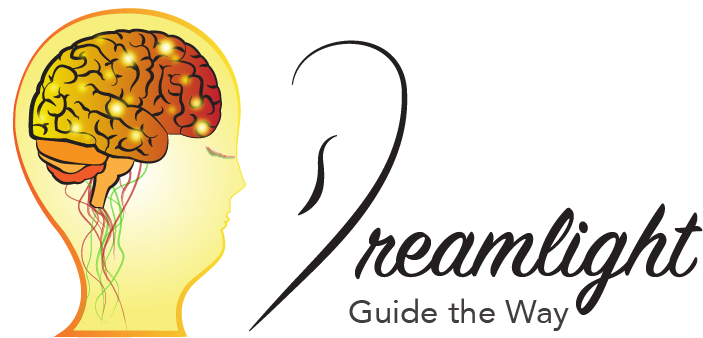
Click here to learn more about the DreamLight.app, an online guided meditation and brain-entrainment tool.
Regular sunlight exposure is a vital part of keeping the high-tech human suit, our physical body, working properly. Sunlight exposure helps the body produce vitamin D as well as fumaric acid. Without sunlight, which is a source of full-spectrum light, your body won’t produce natural antibiotic reactive oxygen species from plants like Artemisia annua. The hydrogen peroxide cycle in the body will fail and hydroxyl ions that would otherwise kill pathogens like Streptococcus pyogenes won’t be properly “cleaved” by photons of light. Our bodies were designed to interact with the full-spectrum light of the sun.Healthy fats play a role in the production of reactive oxygen species in the body that are naturally released when the skin is exposed to photons of light. If we consume unhealthy fats and oils, specifically fats and oils that are stored in plastic jars, transparent jars, or that have been heated, we lack the basic tools to overcome low-level infection with pathogens that deplete one of the most important sources of energy in the body: our blood. Always choose oils that are stored in darkly colored, glass jars - otherwise you’re buying oils that have been degraded with reactive oxygen species that have already been “cleaved” and “quenched” by sunlight or by fluorescent light exposure.
Stop using sunscreen. If you or your child tends to burn easily, consume more lycopenes by eating more cooked tomatoes. Or work with one of the medicinal dyes like Madder / Rubia tinctorum (among others) to change the melanin make-up in the skin such that it becomes more effective at blocking radiation that burns while absorbing radiation that helps the body produce essential substances like vitamin D or fumaric acid.
 Click here to buy Cod Liver Oil.
Click here to buy Cod Liver Oil.
Pycnogenol
Pycnogenol is derived from French maritime pine bark. Pine bark extract contains pycnogenol. Pycnogenol is a potent antioxidant that can reduce inflammation in the brain. It has been used to treat both autism and ADHD as an alternative to prescription medications. It seems to work by increasing the production of nitric oxide to improve blood flow to the brain (which is thought to be impaired in kids with ADHD). One study involved a dose of 1mg / kg of body weight of pycnogenol versus a placebo. In this study, the group that received pycnogenol had significantly better behaviors with better attention and less hyperactivity. This study, of course, didn't include any of the supplements listed above or Mucuna pruriens or amino acids so when the kids stopped taking the pycnogenol, their ADHD symptoms returned. One would expect that children would have much better results if pycnogenol was administered as an ADHD protocol that included all of the supplements listed here as well as Mucuna or amino acid therapy.Indeed, we recommend that parents begin by giving their child treatment with Cinchona officinalis and either Artemisia annua or Hemidesmus indicus. Once a month, methylene blue can be added, as we’ve discussed elsewhere, but be sure to learn about dosing and the progression of treatment using these medicinal agents.
 Click here to buy Pine Bark Extract Powder / Pycnogenol.
Click here to buy Pine Bark Extract Powder / Pycnogenol.
Melatonin
Melatonin should be administered about 1 hour before bedtime to promote sleep in patients with ADHD. The brain normally converts naturally-produced serotonin into melatonin when the patient is exposed to darkness, but some individuals may have trouble converting serotonin into melatonin as a result of poor sleep hygiene habits, for example. Blue light exposure can cause the brain to fail to make melatonin, for example. Taking a melatonin supplement can help bridge the gap to improve sleep quality. Improving sleep in ADHD patients can lead to better focus during the daytime hours. An extended release melatonin product that doesn't contain sugar or other substances that might cause a person with ADHD to become more restless is important. ADHD kids can take up to 2.5 mg per year of age to promote sleep. For example, a child who is 5 years old can take up to 10 mg of melatonin per night. A 7 year old could take up to 35 mg of melatonin nightly. Adults with ADHD can take up to 120 mg of an extended release melatonin supplement. Start with a low dose of melatonin and increase the dose nightly up to the maximum recommended amount or up to an amount that helps you or your child experience a restful night of sleep. In kids with ADHD, you can administer 100-300 mg of Magnesium along with a dose of melatonin to help promote physical relaxation at night. In adults, consider 400 mg of Magnesium along an appropriate dose of melatonin to promote sleep naturally.
 Click here to buy Time-Release Melatonin 5 mg.
Click here to buy Time-Release Melatonin 5 mg.
Resources:

